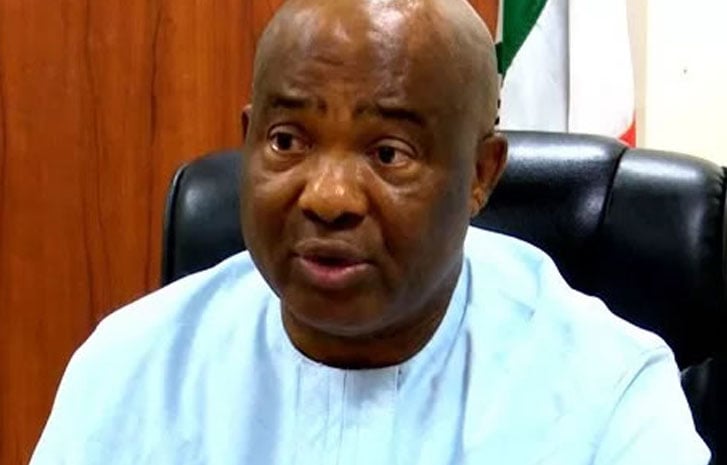A topic that almost everyone avoids discussing is the death of a person and its aftermath. People tend to conveniently forget that death is an inevitable phenomenon that will happen to every human being without exceptions. The topic is generally being avoided in the unguided belief that it is a sensitive one and the person being asked might feel that the questioner has ulterior motive. This is very much far from it as the major concern should be how a person’s estate will be managed and distributed after his/her death.
Most people fail to plan for this unavoidable eventuality and this has led to numerous problems among families which has also often times resulted in several embarrassing and avoidable court actions being instituted between members of the same family who are fighting for their respective shares of the deceased’s estate. In some cases, it has led to total breakdown of law and order as some family members have explored the option of physically assaulting each other to prove their points.
Based on the above, it is without a doubt that estate planning is important and it cannot be overemphasized in order to avoid situations where the estate of the deceased will not be managed or distributed how he/she wants upon his/her death.
Some common and general questions that have arisen among several people with respect to estate planning have been discussed and answered below:
Advertisement
What is death testate and death intestate?
Death testate is when a person dies leaving a Will and death intestate is when a person dies without leaving a Will.
Who are Personal Representatives and how are they appointed?
Advertisement
They are persons who carry out the wishes of deceased persons. They can be appointed by express appointment in a Will; by implied appointment, that is not expressly made in a Will but may be implied by the tenor of the Will; by appointment through a nominee in a Will; by appointment by the court; by appointment by representation which is where there is more than one executor. In the event of any of the executors dying, the others will carry on the duties of the office of the executor. But where the last executor dies having taken probate, any executor of the deceased person’s Will, will be regarded as the executor of the first testator, so long as he obtains probate of the second testator’s Will; and by being executors de son tort (of his own wrong) which is a situation where the executors are not really appointed but are only persons who have intermeddled with the estate of the deceased person.
What are the duties and responsibilities of Personal Representatives and can they beheld liable to the estate?
Personal representatives carry out some essential duties and take charge of some vital responsibilities such as applying to the Probate Registry to prove the Will; collecting and gathering properties in the estate; paying all liabilities and debts of the deceased; ascertaining the beneficiaries to the estate; and distributing the assets by issuing Assents to the beneficiaries.
They can be held liable to the estate in some instances such as for the waste and conversion of the assets of the estate; to pay the estate duty and other estate taxes; for meddling with the estate without taking Probate; and are also liable to the creditors and beneficiaries of the estate of the deceased. They can be discharged from the liabilities to the estate by filing of the final account to the Probate Registrar; express provision in the Will for them to be discharged; relief from the affected Beneficiary(ies) or Creditor(s) for them to be discharged; relief from the Court; and plea of Limitation period in some states which is a period of twelve (6) years for the creditor and twelve (12) years for the beneficiary.
Advertisement
What is the minimum and maximum number of Personal Representatives an estate can have?
There is no statutory limitation or restriction but in practice it is a minimum of two and a maximum of four. Probate will not be granted to more than four persons. It is preferable to have a minimum of two in case any of the two persons appointed predeceases the testator. Where more than four persons are appointed, only the first four will be recognised to act while the remaining will wait till there is a vacancy due to death, renunciation, sickness, or any other reason to fill the vacant part.
What is a Will?
A Will is a document by which a person directs the manner in which his/her estate is to be distributed to the specified beneficiaries after his/her death and wherein he/she appoints executors to administer his/her estate after his/her death. The maker of the document is called a testator (or testatrix where the maker is female). A Will does not take effect until after the death of the testator/testatrix.
Advertisement
Who can make a Will?
Anybody can make a Will so far the person has attained the statutory age and has a sound mind. Statutory age under the Wills Act is 21 years while statutory age under the Wills Law of Lagos State is 18 years. A blind or illiterate person can also make a Will so far it is shown on the document by way of a jurat, that the contents of the Will was read over to the testator and him/her having perfectly understood same, signed/thumb-printed on the Will. The testator must understand that he is making his Will and must also understand and recollect the extent of the property of which he is disposing and the manner in which he is disposing same.
Advertisement
Must a Will be in writing?
According to the Wills Act and Wills Law applicable in Nigeria and Lagos State respectively, every Will must be in writing. In spite of the above referred laws, Oral Wills are still recognised and valid under customary law only on the conditions that the Oral Will must be made voluntarily; the testator must be of a sound mind; it must name the beneficiary or beneficiaries; it must be in the presence of witnesses and it must identify the property.
Advertisement
What are some of the advantages of making a Will?
A Will displaces the application of the rules of customary law to a person’s estate upon death. Where a person does not make a Will, his/her estate is distributed according to customary law. A Will also gives the testator a satisfaction of having ordered his/her affairs before his/her death and it displaces the application of the rules of statutory devolution of property upon intestate death. A Will also gives the testator the benefit of appointing trusted people as executors to the estate.
Advertisement
Are there any restrictions to making a Will?
There are some restrictions to making Wills in Nigeria. Part of such restrictions is Customary Law restrictions with respect to how a person must divide his/her property in accordance with the custom applicable to such a person. An example of customary law restriction in Nigeria is the Igiogbe system of Benin Kingdom where the testator cannot give out the house he lived and died in apart from to the first son, so far the first son has performed the burial rites. Some states also have Wills Laws that restrict how a Muslim can distribute his property in his Will. Also, some states’ Wills Laws mandate that the testator must make reasonable financial provision for his/her dependents.
Can a gift under a Will fail?
Yes, it can fail in some instances. A gift can fail where the gift has stopped to exist at the time of death of a testator. To avoid this, the testator has to give an alternative or substitute gift to the beneficiary in the Will. A gift can also fail where the beneficiary of the gift under the Will dies before the testator. To prevent this, the testator can make a substitute gift to the beneficiary’s children or representatives in the Will.
How can a person amend, revoke, alter or add to his/her Will during the lifetime of such person?
A Will can be altered, amended, added to or even revoked during the lifetime of the testator. The document used to do any of the above is called a Codicil. All the principles applicable to Wills also apply to Codicils. Apart from the use of Codicils, a Will can also be revoked by destruction and there must be actual destruction and an intention to destroy the Will before such revocation will be valid.
Who can be appointed as an executor in a Will and what qualities should they have?
Anybody can be appointed as an executor to a Will apart from infants and mentally challenged persons. Also, the executors should preferably be younger than the testator and must be willing and available to act as executors. They must have capability to manage the estate and must not have conflict of interest with the estate. They should be credible and honest and be able to work in harmony. They should have knowledge of the business of the testator and should reside within the country.
What are the types of Grants?
There are three types of Grants namely Grant of Probate with Will which is where the deceased dies testate, leaving a valid Will with the executors appointed in the Will to carry out the wishes of the testator; Letters of Administration with Will annexed which is where the deceased person dies testate but without appointing executors; or the appointed executors are late; or the executors are infants; or the executors have renounced probate; and Letters of Administration without Will which is where the deceased person dies intestate (without a Will) and so could not appoint executors.
What is the difference between Probate and Letters of Administration?
Probate is the document that legally certifies the validity of the Will that appointed the executors while Letters of administration is an official court order appointing someone as the administrator of a deceased person’s estate where no valid Will exists. While Probate confirms the representation of an executor, Letters of Administration confers the representation of an administrator.
When and how can a person apply for Probate and Letters of Administration?
This is governed by the different Rules of the High Courts in Nigeria. In Lagos State for example, no grant of Letters of Administration with the Will annexed shall issue within 14 days of the death of the deceased and no grant of Letters of Administration without the Will annexed shall issue within 21 days of the death of the deceased. A person can apply for Probate or Letter of Administration either personally or through a legal practitioner.
Who are the persons entitled to a Grant of Probate and Letters of Administration with Will Annexed?
This is provided for in the respective Civil Procedure Rules of the High Courts of the States. In Lagos State, the High Court (Civil Procedure) Rules 2019 provides that the persons entitled to grant of Probate based on priority are the executor; any residuary legatee holding in trust for any other person; any residuary legatee or devisee for life; the ultimate residuary legatee or devisee, including one entitled on the happening of any contingency; any specific legatee or devisee or any creditor or their personal representative; or any specific legatee or devisee entitled on the happening of any contingency.
The persons entitled to a grant of Letters of Administration in order of priority according to the Administration of Estates Law of Lagos State are the Husband or wife (spouse) of the deceased person; Children of the deceased person or the surviving issue of a child who died in the lifetime of the deceased person; Father or mother (parents) of the deceased person; Brothers or sisters of the deceased of full blood and the children of such brothers or sisters who died in the lifetime of the deceased person; Brothers or sisters of half blood of the deceased person or the children of any such half brother or sister who died in the lifetime of the deceased person; Grandfather or grandmother of the deceased person; Uncles and aunts of full blood of the deceased person or their children; Creditors of the deceased person; and the Administrator General (where all the preceding persons fail).
Can a person object to the Grant of Probate to an executor?
Yes, a person can object to the grant of Probate by filing a Caveat which remains operative for a period of three months unless renewed. The Probate Registrar notifies the applicant for Probate of the existence of any Caveat, and shall not seal any Probate if he has knowledge of any effective caveat to the application for Probate. A Caveat shall also cease to be effective where a person who files a Caveat fails to enter appearance to a warning or citation within the specified period, and the citor (the person warning) files an affidavit to that effect and where the Caveat was filed by a person who had knowledge of probate action and still files Caveat against grant after probate action
I am an executor in a Will but I was not available when Probate was granted. Can I apply for the grant of Probate after the first Probate has been granted?
Yes, you can apply for the grant of Probate after the first Probate has been granted. This is called double probate. This can arise where one of the executors is a minor at the period the original grant was made to the other executors; where a grant is made to the maximum number of four (4) executors and a further executor is prevented from taking the grant at the time of granting the first Probate; or where one of the executors is unavailable or did not wish to take grant immediately as at the date of the grant of the first Probate.
Can the court refuse to grant Probate or Letters of Administration or even revoke the grant of Probate or Letters of Administration?
Yes, the court can refuse to grant Probate or Letters of Administration on a number of cases some of which are applications made during the lifetime of the testator and where the applicant falls outside of the table of those entitled to the grant. The court can also revoke an already granted Probate or Letters of Administration in some instances such as where it was made to a person to whom it ought not to have been made or where it was later discovered that the Will upon which a grant was made had been revoked or was invalid before the grant.
Can I apply for Probate or Letters of Administration in one State in Nigeria and take it to administer properties in another State in Nigeria?
Yes, you can. Generally, Probate or Letters of Administration are only applicable to the properties of the deceased within the jurisdiction of the court that grants it but you can take the Probate or Letters of Administration from one State to another State and such must be resealed in that other State where the properties you intend to administer are situated. Re-sealing makes a grant made in one state to be effective within another state.
Are Personal Representatives entitled to remuneration for their service?
The general position of the law is that they are not entitled to remuneration. They are only entitled to remuneration in some cases like where the court makes an order to that effect; where there is a charging clause in the Will; and where a Solicitor or his firm is entitled to costs for work done in connection with the estate and this is only applicable to executors who are lawyers.
Can a Personal Representative withdraw or renounce representation?
Yes, an executor can renounce his appointment and it has to be expressly stated in writing to the Probate Registrar, and he/she might therefore be required to file a form for renunciation or file an affidavit disclosing his/her renunciation. Even in situations where an executor has renounced representation, such executor can still withdraw the renunciation but this must be done with the permission of the Probate Registrar.
Is there any requirement on Personal Representatives to file any document at the Probate Registry after Probate or Letters of Administration is granted?
Yes, the law provides that the Personal Representatives are supposed to maintain an account for the estate and file same in court every twelve (12) months for the duration of their administration of the estate. The accounts shall include an inventory of all assets in the estate; an account of all monies received on behalf of the estate, purchases made, out of pocket expenses, and other necessary account of the administration; the vouchers in the hands of the Executor or Administrator relating to the administration of the estate; and a verifying affidavit. Accounts which are not complete with these documents will not be accepted.
In certain situations, accounts are desirable even before the twelve (12) months period is due. Such situations are where a complaint of maladministration is lodged in the Registry against an Executor or Administrator; where an application is made to the Court for removal of an Executor or Administrator before administration of an estate is completed; where any Executor or Administrator who has been issued a grant himself applied to the Court with a view to surrendering the estate vested in him to the Administrator-General; and where, on completion of administration of an estate, Executors or Administrators thereof apply to the Court to be discharged.
What will give the beneficiaries title over the properties of the deceased person?
Before a beneficiary to an estate can enjoy the benefits of the estate of the deceased person, the Personal Representatives must have issued such person with an Assent which is not required to be by Deed. The Assent must be in writing, must be signed by all the Personal Representatives, must clearly identify the property and must clearly identify the beneficiary.
For further information, please contact:
Ayodele Kusamotu: [email protected]
Paul Kalejaiye: [email protected]
Kusamotu&Kusamotu
(The Greenfish Chambers)
2A, Udi Street, Osborne Foreshore Estate,
Ikoyi, Lagos State.
Email: [email protected]
Website: www.kusamotu.com
Tel: +234 (0) 8147203068






